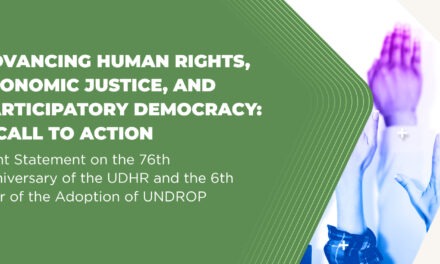Media Contacts:
- Nguy Thi Khanh, Green ID | [email protected]
- Shalmali Guttal, Focus on the Global South | [email protected]
- Wora Suk, Thai ETO Watch | [email protected]
Friday 24 August: Save the Mekong, a coalition of non-government organizations, community-based groups and concerned citizens within the Mekong region, issued a statement today announcing an intention to boycott the Mekong River Commission’s Prior Consultation for the Pak Lay dam. Pak Lay is the fourth dam planned on the mainstream of the Mekong River in Laos.
Prior Consultation is a requirement of the 1995 Mekong Agreement for countries to jointly review any development project proposed for the mainstream Mekong with an aim to reach an agreement on whether or not it should proceed, and if so, under what conditions.[i]
Save the Mekong coalition is boycotting the Pak Lay Prior Consultation because serious and outstanding concerns regarding each of the mainstream dams that have undergone the process to date – the Xayaburi, Don Sahong and Pak Beng dams – remain unresolved. Furthermore, the Pak Lay Prior Consultation began just one day after the Lao Government announced a suspension of new hydropower projects following the tragic Xe Pian-Xe Nam Noy hydropower project disaster in Attapeu, Southern Laos.
Wora Suk of Thai Extraterritorial Obligation-Watch Working Group (Thai ETO-Watch) and member of Save the Mekong explains: “Previous Prior Consultations have been regarded as a rubber stamp to satisfy community consultation obligations. In reality, these processes have not taken community concerns into account.”
The Pak Lay dam threatens to compound the impacts of existing dams on the Mekong mainstream. These dams are expected to cause irreversible damage to the livelihoods and cultures of tens of thousands of people living along the Mekong and its tributaries, whose lives and traditions are closely linked to the river system and its rich natural resources.
Tongsuk Intavong, Headman of Huay Leuk village in Chiang Khong district, Chiang Rai province, just upstream of the proposed Pak Beng Dam, says, “We have worked with Thai and Lao communities on both sides of the Mekong River to restore fish habitats and manage fish conservation. If plans for dams on the mainstream Mekong proceed, our livelihoods and fisheries will be irrevocably impacted.”
“We rely directly on the Mekong, and stand to lose everything,” adds local fisherman Por Bun.
Riparian villagers’ fears are well founded. The MRC Council Study, released in February this year, starkly shows that the series of eleven large hydropower dams on the Mekong River’s lower mainstream and 120 tributary dams planned by 2040 pose a serious threat to the ecological health, economic vitality, and food security of the region.
“Laos is building and planning a series of nine dams on the mainstream Mekong and up to 120 dams on Mekong tributaries. These dams are already causing huge impacts on biodiversity and local livelihoods, as this rich legacy is stolen from the current generation of youth,” said a Lao representative of Mekong Youth Assembly, who wishes to remain anonymous.
Plans for another large-scale hydropower project are of particular concern in light of the collapse of an auxiliary dam of the Xe Pian-Xe Nam Noy hydropower project in southern Laos.
“The Xe Pian-Xe Nam Noy disaster clearly shows the huge risks to life, livelihoods, environment and economies from hydropower projects in the areas surrounding the project, as well as downstream and across national boundaries,” says Shalmali Guttal, Executive Director of Focus on the Global South. “At a time like this, the MRC should be helping the Lao government to address gaps in past Prior Consultation processes and implement the Council Study recommendations, not embarking on a consultation process for a new hydropower project that is likely to compound these risks.”
In response to the dam collapse, the Lao government announced an independent investigation of built and under construction projects and a suspension of new hydropower investments pending a review of the country’s hydropower strategy.
A key recommendation of the MRC’s Council Study is consideration of emerging energy technologies, such as solar and wind, that are competitive with hydropower. Rather than embarking on another flawed prior consultation process, Save the Mekong coalition in its statement urges the MRC to support the Lao government to re-evaluate plans for further dams in favour of alternative sources of energy generation and development revenue.
“The Lower Mekong Basin holds great potential for renewable and decentralized electricity technologies,” said Nguy Thi Khin, Director of the Green Innovation and Development Center Vietnam (Green ID) and 2018 Goldman Environmental Prize winner. “By adopting national energy policies that encourage investment in renewable energy, lower Mekong governments can usher in an era of truly sustainable growth, placing highest priority on healthy rivers and the safety and wellbeing of riparian communities.”
Download the statement below.









